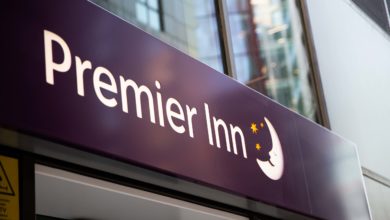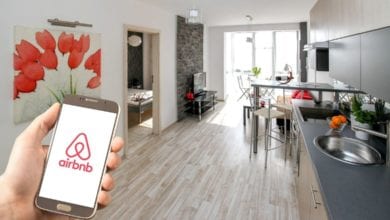How to build loyal customers

Loyalty is vital for hoteliers, who often rely on repeat customers. The whole point of creating a nice place to stay, and delivering an excellent service, is not only to get people to return, but to have them recommend the establishment to their network of friends, family and acquaintances.
How many hoteliers can say that their customers go out of their way to stay with them? Does the guest build their holiday plans around their favourite hotel, or do they opt to stay there simply because it’s convenient for them? While convenience creates a certain kind of loyalty, it’s often fickle and can change with shifting habits and requirements. Hoteliers need to focus on creating a deeper level of loyalty, one where people make an active choice.
Standing out from the crowd
We’re all aware of just how competitive the service industry is. Profit margins are tight and at first glance creating a loyalty programme may seem like a costly exercise. Do you provide freebies, or offer the odd free night during a customer’s stay to show appreciation? Is that an expense that can be justified?
The truth is, creating loyalty isn’t about crafting a flashy, attention grabbing promotion or chucking free money at people. It’s about developing a relationship, and like all relationships, it takes time to get to know and to really understand someone, in this case, the customer.
For hotels that are part of a chain, sharing and tracking feedback across multiple sites is critical to loyalty. To stand a chance of building a lasting loyalty with individual customers, hoteliers must share knowledge about, and feedback from, individuals who regularly stay with the hotel group in different locations.
They need to know as much as possible about what guests are saying about their stay, no matter where they are saying it. If they check-out and post a tweet on the way to the airport complaining about the hard pillow that gave them a stiff neck, is this tweet seen? Is it responded to? Does a note get added to the CRM database regarding the guest’s preferences? Does the hotel act on this note the next time the person makes a booking and ensure a different pillow is already in their room? You might say it’s just someone venting after a bad day, why make a fuss? But it’s these micro-interactions that can endear or alienate people to the hotels they visit.
Show that you know them
Hoteliers need to demonstrate that they are operating with the customer’s wellbeing at the forefront of everything they do. Increase the convenience for your regular customers.
What does your guest really want? It may not be just giving a guest their favourite room. By assuming rather than knowing what customers want out of their hotel stay, you miss the opportunity to tailor the experience to the individual.
While some appreciate an upgrade over anything else, for those that travel frequently, comfort and convenience are often what they care about most. By adding to their loyalty membership profile that they always request the same newspaper means that check-in staff can show that the customer truly matters by offering that paper free of charge in the morning. Sometimes it is the little things that customers value most.
Create a seamless experience
Make your guest’s stay smooth and hassle-free. Hilton is a great example of doing this well, with its digital keys – a system in which customers can use their smartphones to check in and unlock their rooms. The advantage of not joining a queue and not having to speak with someone behind the desk to check in is something that Hilton loyalty programme members can benefit from. Allowing these customers to book online and check-in and out via an app to skip the queues provides an extra level of service.
Hotels could also learn a lot from Starbucks on this convenience. Not only do loyalty programme members go back for the odd free drink and offers, but because they can order through an app in advance. This means the coffee is ready for them when they arrive. No queues and no waiting for the coffee to be made. Adapting this experience to hotel check-in would make it more appealing for guests to keep coming back.
Hotels may get people through the doors via a discount deal initially, but they’ll only come back if the service is excellent and the experience was good. Anything that you can do to make someone’s stay that little bit more relaxing will strengthen the loyalty they have to the establishment.
Random acts of kindness
Don’t lose the opportunity to woo your loyal guests but do it discreetly, not as part of a big advertising campaign. Surprise them, by doing something unexpected, even if they aren’t in a top-spending segment of your customer base.
Having a free stay because you have returned to the same hotel enough in the past is always attractive to a guest, but if, like Melia Hotels, you give them something they aren’t expecting – a special note in the room, an added (free) experience such as a massage – it will really set you apart.
Offer the best deals up-front
Be the one who loyal guests can trust – after all, loyalty comes from building the relationship with you as a brand and not another hotel that might offer a greater discount. Give loyalty scheme members the best available rates via your website, as well as points and perhaps a free experience to reward them for booking direct.
Use data wisely
While guests data can help hoteliers shape individual experiences, it shouldn’t be used to constantly stalk or harass them across the web. There’s nothing more irritating than seeing the same ad popping up on every site you visit.
Change the experience by showing different things on your ads – for example, focusing on adverts which evoke good emotions, showing people enjoying an experience, rather than just a picture of a hotel. Sandals is a good example of how to use emotive advertising.
The objective should be to use the data available to create a more complete picture of what people want from their stay in order to deliver individualised offers, but be too aggressive and you risk driving people away.
Guests know themselves best
No amount of data or research can equate to the power of choice. We know ourselves best. Hoteliers should use this fact and let people choose their own loyalty rewards from a selection. Taking the airline industry as an example, Norwegian Air lets its customers choose the experience they want when they enrol in the scheme. This makes it more contextual and meaningful to the guest.
While discount deals and free nights might get new guests through the doors, the creation of true loyalty is a long game. Every interaction with the guest shapes their opinion of the hotel, every bit of feedback that gets ignored stunts the development of loyalty.
To remain competitive, hoteliers must turn to their customers. Get to know them as individuals, try to shape their experiences around what they’ve told you they want from their hotel stay. The data is available, we just need to use it.









